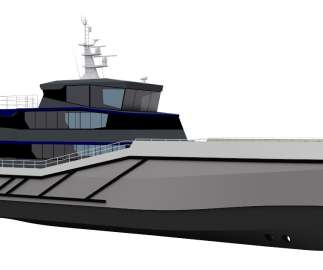Chartwell secures £320k Innovate UK Smart Grant to develop methanol-fueled vessel design
Green Car Congress
JANUARY 18, 2023
The grant will enable Chartwell and consortium partners—Boat Electric & Electronics and Engineered Marine Systems—to develop and test the feasibility of a market-first methanol-fuelled vessel design, with applications in the offshore wind, commercial workboat and leisure sectors.












Let's personalize your content